The patient is responsible for either providing the health center with all documentation that will help assure that the financial obligations of his/her health care are fulfilled as promptly as possible or his/her financial obligations are being met as promptly as possible.
The patient is responsible for following health center rules and regulations affecting patient care and conduct.
The patient is responsible for being considerate of the rights of other patients and health center associates, for assisting in the control of noise and for being respectful of the property of other persons and of the health center. He/she is responsible for treating associates and other patients in a respectful manner.
The patient has the responsibility to abide by the health center’s policy of no smoking.
As a patient in a Clinic in New York State, you have the right, consistent with law, to:
The rights of people in outpatient mental health programs are protected by both law and regulation.
The State Office of Mental Health (OMH) licenses outpatient programs including but not limited to, clinic, day treatment for children, intensive psychiatric rehabilitation treatment, partial hospitalization, Assertive Community Treatment (ACT), and Personalized Recovery Oriented Services (PROS). Under these licenses, an array of facility based and community-based services are available.
Participating in a psychiatric treatment program does not mean you are mentally incompetent or that you have any restriction on the rights granted to all citizens. There are specific civil rights that are protected if you participate in an outpatient program. Included are right to register and vote in elections, apply for permits and licenses, take civil service tests, and apply for jobs and be appointed without discrimination if you qualify.
Under the law, you have the right to be treated confidentially, with respect and dignity by all staff people. Treatment or access to programs may not be limited or denied because of race, creed, color, sex, national origin, age, marital status, or disabilities that are unrelated to treatment. If you think that you are being discriminated against on any of these grounds – or if you believe that you are a victim of mental, verbal, physical, or sexual abuse – this booklet tells where you may file an official complaint.
You also have the same right as other citizens to designate a “health care proxy” or prepare an “advance directive.” Because some people have recurring episodes of mental illness, these documents may be of particular interest to people who use mental health services. The documents allow you to provide instructions about your future treatment, to be used later if you are unable to give instructions at the time you are being treated.
When you are admitted to an outpatient program, or shortly after, you should be informed about your rights. Your rights may not be limited as punishment or for the convenience of staff people and may not be restricted unless a specific order is written by a physician. Any restrictions on your rights must be discussed with you prior to the restrictions going into effect and the order must be placed in your clinical record. The order must state the clinical justification for the limitation and the specific time period when it will remain in effect.
These rights include:
In a separate category, your outpatient program may inform you about these additional elements, although they are not rights set forth in law or regulation:
For most people, participating in an outpatient program is voluntary. Occasionally someone is ordered by a court to obtain outpatient services under the Assisted Outpatient Treatment Program (also known as Kendra’s Law) or as a condition of parole from prison. While your full participation in the program is a central goal, if you object to your individualized service plan, or if it is not working to your satisfaction and you want it changed, that is not reason to discharge you from the program. Periodically, you can expect to review your plan with staff – people to look at your progress. You can be discharged if participation is no longer clinically appropriate or if you engage in conduct that poses a risk of physical harm to yourself or others.
You have the right to make an informed choice on whether you will participate in research projects. These could involve new medications, a series of questions posed by an interviewer, or questionnaires. If you refuse to participate, a program cannot use that as grounds to deny you further treatment. If you decide to participate, your signed informed consent is required.
The law protects your right to privacy and confidentiality during treatment. This includes conversations between you and staff people who provide services, and information in your record. The Office of Mental Health will provide you with a separate Notice of Privacy Practices that will tell you how we use and disclose your confidential mental health treatment information. It will also tell you what your rights are with regard to your mental health treatment information, and who you can contact if you have questions or a complaint about how we have used or shared your treatment records.
Generally, information from your treatment record cannot be released without your written consent. In limited circumstances, however, the law may allow or require release of records or information to certain individuals, governmental agencies or provider organizations. Most disclosures will be noted in your record, and you are entitled to learn about them upon request. The law states that notations do not have to be kept when records are disclosed to the Mental Hygiene Legal Service, quality of care reviewers, or government finance agents dealing with payments. The law also says that for disclosures made to insurance companies licensed under the State Insurance Law, such a notation needs to be entered only at the time the disclosure is first made.
You must be given an opportunity to inspect your clinical record when you have submitted a written request. The law does allow some limitations on this access, based on clinical justification. In addition, you have the right to request that your physician discuss your treatment record with you.
If you request an inspection or a copy of your record, a program can impose a reasonable charge for all inspection and copies. The charge cannot exceed what these services actually cost the program. In no case can a program charge more than 75 cents per page.
If you disagree with some part of your record, you can submit a written statement challenging the information in the record to be permanently attached to the record.
You may ask to have your record sent to any other service provider or your attorney. If you are under age 18, a parent or legal guardian may make this request.
You have the right to information on how to make a complaint. A provider of service must give a notice of recipients’ rights to each person upon admission, and post the rights in an easily accessible location.
If you have a problem or complaint, the person who runs the program is responsible for making sure your rights are protected. If this does not work, or is inappropriate, there are other organizations that can help.
A staff member, such as the personal service coordinator or principal contact person, or director of the program.
44 Holland Ave., Albany NY 12229
Toll free: 1-800-597-8481, En Español: 1-800-210-6456
161 Delaware Avenue
Delmar, NY 12054
1-855-313-2122
Disability Rights NY
725 Broadway, Suite 450
Albany, NY 12207
1-800-993-8982
41 Madison Ave., 26th floor, New York NY 10010
1-212-779-1734
170 Old Country Road, Mineola NY 11501
1-516-746-4545
40 Steuben Street, Suite 501, Albany, NY 12207
1-518-474-4453
50 East Ave., Suite 402, Rochester NY 14604
1-585-530-3050
99 Pine Street, Suite 302
Albany NY 12207
1-800-950-3228
To contact The Joint Commission or to express concern about this organization, email: [email protected]
For additional copies of this booklet fax your request to: Utica Print Shop, 1-315-735-5041

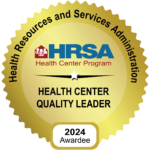
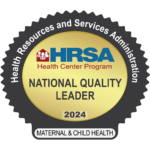
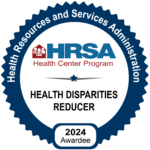
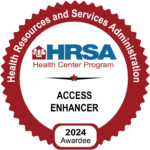
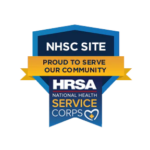
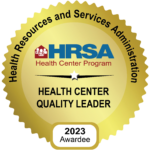
Center Program grantee under 42 U.S.C. 254b, and a deemed Public Health Service employee under 42 U.S.C. 233 (g) –(n) “This health center receives HHS funding and has Federal Public Health Service (PHS) deemed status with respect to certain health or health-related claims, including medical malpractice claims, for itself and its covered individuals.